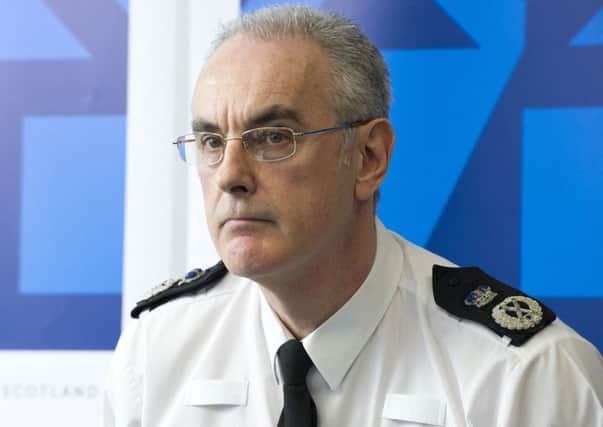Investigations into senior cops '˜lengthy and damaging', MSPs told


The Scottish Chief Police Officers Staff Association (SCPOSA) - which represents Police Scotland’s chief constable, as well as assistant and deputy chief constables - has questioned the time it takes the Scottish Police Authority (SPA) and the Police Investigations and Review Commissioner (Pirc) to conclude inquiries.
In a submission to MSPs on Holyrood’s Justice Committee SCPOSA complained that “disproportionate, lengthy and damaging enquiries appear to be undertaken with no route of challenge existing”.
Advertisement
Hide AdAdvertisement
Hide AdThe process for investigating allegations against senior officers was set out in the legislation which created Police Scotland as a national force, replacing eight regional bodies.
But SCPOSA claimed the Police and Fire Reform (Scotland) Act 2012 has “inherent flaws” which have not been addressed, despite concerns being raised with both the Scottish Government and the SPA.
And with the committee now examining the impact of the legislation, it has called for a review of the accountability of both the SPA and the Pirc.
It comes after former chief constable Phil Gormley quit the post in February - some five months after he had been placed on special leave amid investigations into claims of gross misconduct.
SCPOSA said Mr Gormley had “resigned before the resolution of the allegations against him despite enquiries having been ongoing for many months”.
SCPOSA stressed it “unequivocally recognises the need for a fair, proportionate, transparent and robust system to deal with matters of complaint, misconduct and allegations of criminality in relation to senior officers”.
SCPOSA said in the five years since the Act had come into force it had “become increasingly concerned regarding the length of time taken by both the SPA and PIRC to complete what have been seen as relatively straightforward enquiries or assessments”.
Advertisement
Hide AdAdvertisement
Hide AdIt stated: “In many of these cases months have passed with no apparent progress and indeed no explanation of why no progress has been made.”
It insisted the Scottish Government “could not have intended such delays” when it drew up the legislation, and “could not have envisaged the damage these lengthy enquiries would cause to the reputations” of Police Scotland and officers being investigated.
The submission continued: “Whilst it is accepted that enquiries into allegations of wrongdoing on the part of the most senior police officers in Scotland will always cause a significant amount of public and press interest the level of intrusion currently being encountered could not have been anticipated at the inception of the new arrangements.
“In a number of instances the Association and indeed individual officers have only become aware of investigations into their conduct when articles have appeared in the media.
“Whilst it is unclear where such information has originated it is clear that it does significant damage to the officers’ reputations and also to any concept of fairness of enquiries into the matters.”
It added: “The Scottish Government and indeed the people of Scotland rightly expect the highest standards from senior police officers who carry significant responsibilities and pressure.
“In return, the senior officers should surely be entitled to expect that when complaints are received, they are dealt with in a manner which protects their personal and professional reputations for the future.
“In a number of instances this has not been the case.”